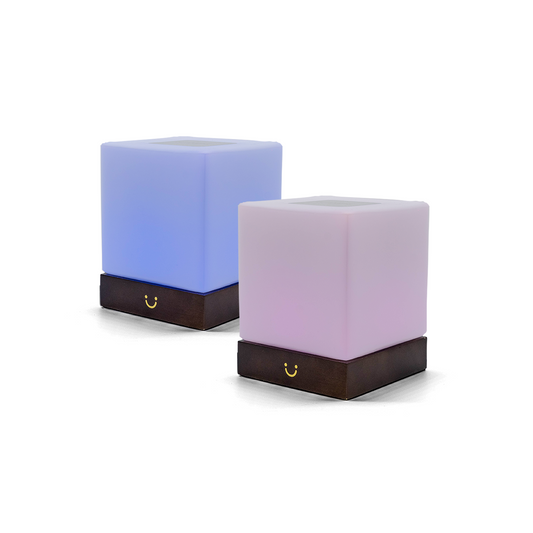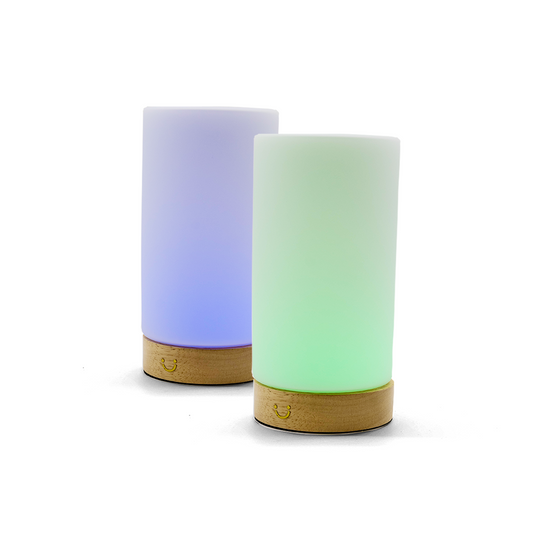Relationships are hard - blood or otherwise. But the hardest relationships are often the ones we choose to get into, not the ones we're born into. Perhaps it's because we tend to take our blood relationships for granted, or because we give a lot of leeway and discounts to family members; or perhaps it's because there's an unbreakable bond even between estranged members of the same family that we can never really shake off or leave behind. The real challenge is in keeping a healthy relationship with people that we're not obligated to. That means friends, lovers, spouses, life partners, and soulmates.
Now, obviously, we're not talking about relationships like those between an employer and a worker or a business owner and their customer. Those aren't relationships; they're merely functional units of society that we need for baser purposes, like putting food on the table or paying the light bill. Even a nurse-patient or doctor-patient relationship is not part of the category of relationships that we cover here. Those, too, are social interdependencies rather than true relationships. However, they are broadly called relationships because they involve some sort of interaction between two or more parties.
Back to our point, most of us go through life just 'maintaining' relationships instead of nurturing them and caring for them. Like delicate saplings, relationships, too, need their own versions of food, water, sunlight, and space to grow. That brings us to the four pillars of a healthy relationship and how to strengthen and fortify them so the relationship grows stronger, not weaker, with time.
The Four Pillars of a Healthy Relationship
The First Pillar: Love, the Basic Food of Every Relationship
Love in its many shapes forms the foundation of any relationship. Unfortunately, the word has been so abused over the years that it has lost its true meaning. Love is not about physical intimacy or even being on the same mental wavelength. It goes beyond that, into the realm where 'the self' is forgotten and a deeper connection between souls is established. The physical part of love is what's being focused on now because of Hollywood and its version of "what people want."
In truth, love begins in a realm where souls are inexplicably connected to each other by a bond that goes beyond blood, beyond similar backgrounds, and beyond any physical aspect. There can be true love between friends of the same sex with no hint of sexuality, which is antithetical to what is usually depicted in movies and other forms of media entertainment. Well, that's not entirely true. There's 'bromance', for one. The point is, love is the basis of any relationship. Everything else - respect, admiration, sacrifice, even obsession, is born from love.
As such, love is the first pillar of any relationship. Indeed, we can go so far as to say that no relationship can exist without love.
The Second Pillar: Trust, the Water of a Relationship
Trust is the water that carries the essential nutrients to feed a healthy relationship. Without love, there is no trust; and without trust, there is nothing else. Communication arises from trust - or, at least, the hope of trusting and being trusted. Communication itself cannot exist if there is no trust. That's what happened in the Cold War Era between the Western and Eastern Bloc nations post World War II. Neither side was able to trust the other, so communication eventually deteriorated into a situation where espionage was the only way to get any reliable information about what was going on on the other side.
Relationships are like that as well. If there is no trust, there can be no meaningful communication. That's why we invented small talk! It allows us to socially engage with people we barely know and still remain civil. In a relationship of any kind, the element of trust allows us to let down our guard and reveal our true selves, just like water nourishes a sapling and allows it to spread its leaves and gather the sun's rays rather than shrink and wither away into nothingness.
Trust is much more important than you might think it is. Just like love, it is one of the four pillars that keep a relationship upright and growing. And, just like that plant, if a relationship isn't growing, it's dying. There's no such thing as a relationship that has already achieved its highest purpose; it is an evolutionary process that is ongoing. Therefore, love and trust are the food and water of any healthy relationship. And these form the first two pillars of a healthy relationship.
The Third Pillar: Acknowledgment, the Sunlight that Enriches a Relationship
Call it what you will: recognition, respect, admiration, adulation, appreciation, etc. The fact remains that healthy relationships need both parties to acknowledge the value that each brings to the relationship. It can take different forms, but what it is is a recognition of what the other person is contributing toward making the relationship work.
The interesting part is, this acknowledgment needs to be explicit, not implicit. In many relationships, one or the other partner tends to take the position of 'he knows I respect him' or 'she knows I value her opinions.' Unfortunately, the other person seldom knows. That's why it is important to make your respect or admiration known to the other person. It can be directed to that person or even alluded to in a conversation with someone else. The point is, it must come through in a perceptible form.
In a
recent article we wrote about celebrities who have successfully navigated the murky waters of long-distance relationships, we noted that respect for the other person was amply visible in their behavior and their words. In several interviews and conversations, Sarah Jessica Parker and her husband Matthew Broderick clearly complemented each other's positive traits. That's what couples, friends, and family members in any healthy relationship do. They 'edify' each other regardless of whether the other person is present to witness it or not. This is the third pillar of a healthy relationship.
The Fourth Pillar: Independence, the Space to Grow
Even with love, trust, and acknowledgment, a relationship is like a wobbly three-legged stool. In order to achieve greater stability, there must also be independence and space for the relationship to grow even stronger. Many relationships we know, or are a part of, have the first three pillars figured out, but the relationship still struggles because we stifle each other, not allowing each other the space to stretch and explore new avenues without us.
Love, trust, and acknowledgment are not enough without giving each other room to experience new possibilities and pursuits. Most of us tend to stay within our comfort zones because of the fear that the other person won't give their blessings or approval, or even acceptance. It is often the missing piece of the puzzle in a relationship where everything else seems to be in place but it doesn't appear to form a whole picture.
If you think about it, this aspect is missing in most of our relationships. Maybe that's why it's called a bond - because it's like being tied to something. If we can recognize and overcome this fear that giving the other person the freedom to explore their surroundings will somehow make us lose them, it will go a long way in strengthening the relationship. Remember that beautiful saying: "if you love something, set it free; if it comes back to you, it's yours; if it doesn't, it never was"? Remember that one? That's exactly what the fourth pillar of a healthy relationship is about. It's about having the faith to let go, and the confidence in the strength of the relationship. And that confidence can only come when the first three pillars are firmly in place.
In conclusion, every relationship that is founded on these four pillars eventually becomes a thing of beauty. Just like that little sapling that you watered, nourished, planted under ample sunlight, and gave adequate space to grow ultimately became a towering structure that benefited the environment around it in a myriad of ways, your relationship will eventually turn into a healthy one that others will admire and, hopefully, try to emulate in their own lives.





